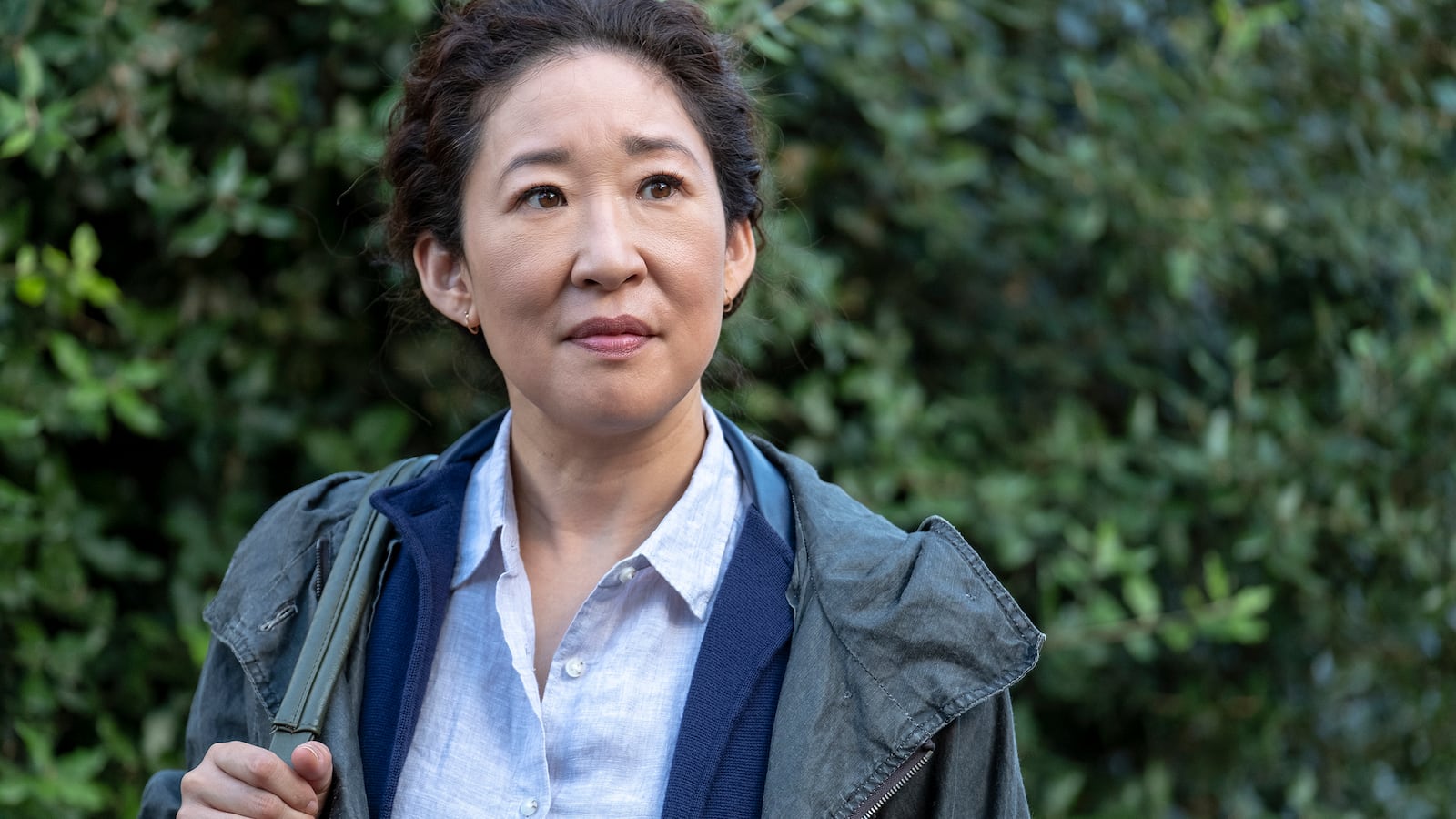In the nine months since Killing Eve last aired, there’s been a question stalking the series that’s been almost as anxiety-inducing as the chase in the drama itself: Do we really need a season two?
As the number of offerings catapult right up the #PeakTV summit and then up and over the edge, even the biggest fans of certain shows have started to question whether there’s really value in continuing past a first season of television that, as it presented itself in its original form, was practically perfect. Perfect is a strong word, but Killing Eve is a series that merits those.
Phoebe Waller-Bridge’s BBC America crime series, in which Sandra Oh plays an assassin-obsessed MI6 agent and Jodie Comer the psychopath killer who catches her eye, was unlike anything we had ever seen.
It was a thriller as intense, twisty, and exhilarating as they come, but injected with a style, whimsy, and decidedly feminine deviousness that made each scene its own surprise. What tone would it be? Which shade of Comer’s Villanelle were we going to get? And, the most exciting question, who is chasing whom?
It’s rare for something to feel that special given the imposing mountain of shows there are out there, so it’s understandable to want to milk something that unique for all it’s worth. But there’s also the instinct that maybe we should let nice things be.
This isn’t the first time TV fans have struggled with this existential question. And it’s worth noting that nearly all recent examples have featured women front and center in new takes on genres that used to be dismissed because of their presumed feminine audience. For some, the decision to continue has worked. (The Handmaid’s Tale, for example.) For others, it very much did not. (UnREAL.) The jury’s still out on Big Little Lies, and we’re still waiting to hear if they’ll pull the trigger on more Sharp Objects.
But for now, at least, we have the new Killing Eve. And the new Killing Eve is good.
Everything that worked so well in season one is back in essentially the same form, and it’s working again. If that sounds like the show might be retreading the same quirks and feel a bit repetitive, well, that’s true. But it’s such a blast, and so meticulously, weirdly crafted, that you frankly don’t care.
Things pick up, wisely, 30 seconds after we last left.
Eve and Villanelle’s bizarre attraction to each other unexpectedly combusts when they finally spend time together in Villanelle’s apartment. Eve stabs her. Villanelle shoots at Eve. While Eve cowers in the kitchen, Villanelle runs away.
Restarting the action immediately after the events of the finale is a clever way to maintain the first season’s most refreshing creative rule. Killing Eve never bothered with the exhausting exposition that pads and drags most American crime dramas, ensuring the brisk thrill ride blasts off from the first moments. In season two, there’s no need for ham-fisted explanations for why these two are back on each other’s trails again. It’s only been 30 seconds. They never left.
Eve finds her way back to London and basically returns to her previous role of obsessing over Villanelle’s whereabouts, spending all hours of the night Googling for news of where she might have gone. No one could have predicted how appealing a Sandra Oh version of James Bond would be. Double Oh Seven?
It’s Villanelle whose narrative is upended. She’s used to be the being the one who preys. Now she’s injured and on the lam, a fish-out-of-water scenario in which it’s a riot to see her try to keep her bearings—though you suspect, with this cold-blooded killer, she’s always in more control than she lets on.
She ends up sharing a hospital room with a teen boy named Gabriel, and she seems to let her guard down, exhibiting some compassion and empathy. You let your guard down, too, which is a mistake.
You spend these scenes—and so many more across the two episodes we were given to review—wondering how human she is. And when it’s made clear again that she isn’t, it’s still jarring every time. The extent to which she, through Comer’s performance, manages to replicate human emotion, though, is spell-binding. It’s what lends the series its menace.
The wicked humor is back. The macabre peculiarities are back. The riveting obsession between these two characters is back again, too.
“Women don’t stab,” Gabriel tells Villanelle when she tells him what Eve did to her. “I know. It surprised me, too. She did it to let me know how much she cared about me,” she says back.
Obsession takes on a different context when it’s women who have the preoccupation, and Killing Eve plays with those suppositions with such canny wit and perverse awareness. The show has the effect of at once mocking the audience for those coded suppositions while engaging in the slickest, smartest spy drama of the modern TV era.
In a show of confidence for season two and its potential to hold on to the all the attention and accolades the first season earned, Killing Eve will be broadcast on both BBC America and AMC this year. The latter, of course, is the network of Mad Men, Breaking Bad, Better Call Saul, and The Walking Dead.
The promotion is business-related—no modern cable series saw its ratings climb the way that Killing Eve’s did last year—but it’s also symbolic, signaling the show as the next in that crop of elite offerings. It would be the only female-fronted series in the mix, which certainly means something. And it’s about time, too.
Want to talk about Killing Eve? Join The Binge, our Facebook group for streaming superfans.





